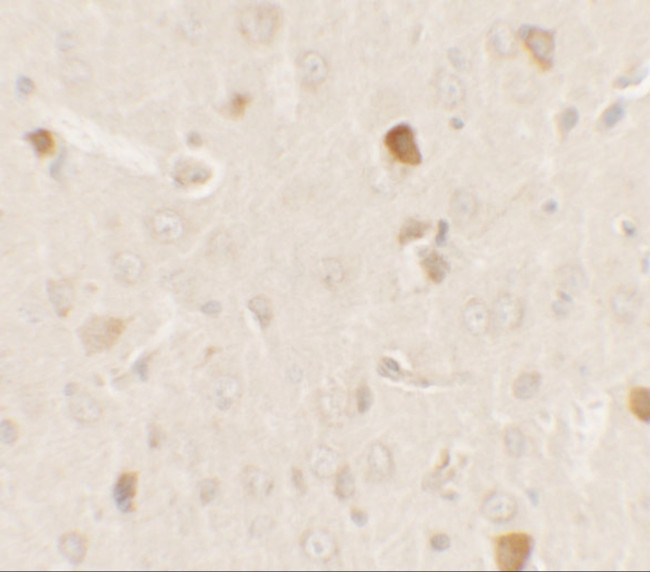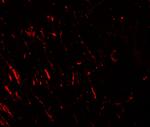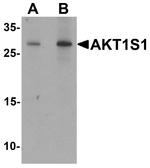Search Thermo Fisher Scientific
Product Details
PA5-34565
Species Reactivity
Published species
Host/Isotype
Class
Type
Immunogen
Conjugate
Form
Concentration
Purification
Storage buffer
Contains
Storage conditions
Shipping conditions
RRID
Product Specific Information
A suggested positive control is human brain tissue lysate.
PA5-34565 can be used with blocking peptide PEP-1608.
Target Information
The Akt signaling pathway contributes to the regulation of apoptosis after a variety of cell death signals. AKT1S1, also known as PRAS40, is a proline-rich substrate of the kinase AKT1 and is thought to play a role in neuroprotection mediated by nerve growth factor (NGF) after transient focal cerebral ischemia. AKT1S1 is also a substrate and potential regulator of mammalian target of rapamycin (mTOR), a serine/threonine kinase that regulates cell growth and cell cycle, and a negative regulator of autophagy. Treatment with the insulin-like growth factor-1 (IGF1) can induce the phosphorylation of AKT1S1 via the PI3K/AKT signaling pathway in PC12 cells.
For Research Use Only. Not for use in diagnostic procedures. Not for resale without express authorization.
Bioinformatics
Protein Aliases: 40 kDa proline-rich AKT substrate; AKT1 substrate 1 (proline rich); AKT1 substrate 1 (proline-rich); AKT1S1; OTTHUMP00000196756; OTTHUMP00000196760; PKB/Akt substrate 40; Proline-rich AKT substrate; Proline-rich AKT1 substrate 1
Gene Aliases: 1110012J22Rik; AI227026; AKT1S1; Lobe; Lobel; Pras; PRAS40
UniProt ID: (Human) Q96B36, (Mouse) Q9D1F4
Entrez Gene ID: (Human) 84335, (Rat) 292887, (Mouse) 67605

Performance Guarantee
If an Invitrogen™ antibody doesn't perform as described on our website or datasheet,we'll replace the product at no cost to you, or provide you with a credit for a future purchase.*
Learn more
We're here to help
Get expert recommendations for common problems or connect directly with an on staff expert for technical assistance related to applications, equipment and general product use.
Contact tech support



